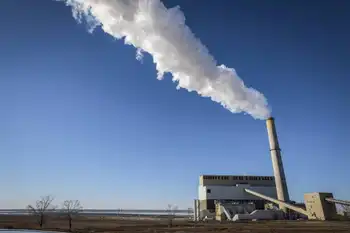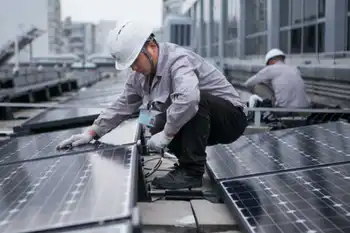Scientists studying impact of possible FutureGen plant
BRYAN, TEXAS - The environmental impact of a near-zero emissions coal plant on the small Leon County town of Jewett is being studied by a group of Texas scientists.
It's the latest hurdle that must be cleared before Jewett can land the U.S. Department of Energy's FutureGen project - a first-of-its-kind, $1 billion power plant. Once completed, the plant is expected to generate electricity and produce hydrogen, while capturing and storing carbon dioxide far beneath the Earth's surface instead of emitting it into the atmosphere.
Jewett is one of four finalist cities in an ongoing competition to be the location of the high-profile project. Odessa also is in the running along with two sites in Illinois. The sites were selected from a list of 12 that spanned across seven states. A final site is expected to be announced late next year, with the plant operational by 2012.
Scott Tinker, director of the Bureau of Economic Geology at the University of Texas, is leading the effort to pinpoint the impact of the plant. He also is director of FutureGen Texas, a group assembled by state officials to lobby for a local site.
Among the many factors his group will consider, Tinker said, will be the potential for disrupting any endangered species or vegetation.
"One big challenge is to get the environmental impact statement," he said. "The footprint is equal to a regular power plant. The environmental upside is emissions will not be released in to the atmosphere."
Tinker said instead, carbon dioxide emissions will be released beneath the surface - well below any water supplies.
With its existing infrastructure and proximity to an active coal mine, Jewett is a solid contender to become the site for the plant, he said.
U.S. Rep. Joe Barton, R-Ennis, toured the 400-acre site in Jewett on Monday. Barton, who is the chairman of the House Energy and Commerce Committee, said Texas is the natural home for a project that promises to create clean fossil fuel energy - a growing priority for the country and the world.
"This is potentially the most important (research and development) project in the country," Barton said. "It's a win/win. You get economy improvements in terms of efficiency and environmental improvements in terms of having near-zero emissions."
Related News

Alberta creates fund to help communities hit by coal phase-out
EDMONTON - The Coal Community Transition Fund is open to municipalities and First Nations affected as Alberta phases out coal-fired electricity by 2030 to focus on renewables and natural gas.
Economic Development Minister Deron Bilous says the government wants to ensure these communities thrive through the transition
“Residents in our communities have concerns about the transition away from coal,” Rod Shaigec, mayor of Parkland County, said.
“They also have ideas on how we can mitigate the impacts on workers and diversify our economy to create new employment opportunities for affected workers. We are working to address those concerns and support their ideas. This…




